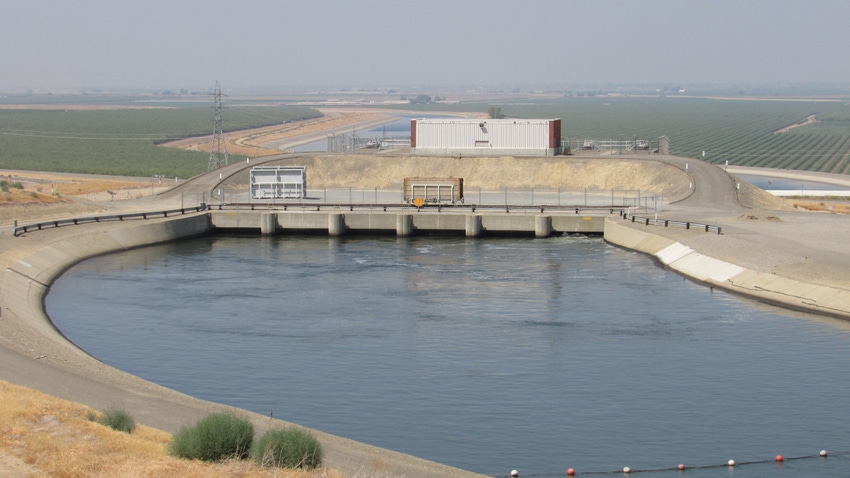
Farm groups say new biological opinions for fish in the Sacramento-San Joaquin River Delta could bring more water to often-parched San Joaquin Valley orchards and fields.
The opinions, finalized Oct. 21 by the U.S. Fish and Wildlife Service, could add flexibility to operations of the Central Valley Project, argue the California Farm Bureau Federation and other organizations.
“We expect these new biological opinions to approach fishery recovery through a variety of tactics, including habitat restoration, improved science, and flexibility in dedicating enough water at the right time to maximize fishery benefits and improve water deliveries to people,” CFBF president Jamie Johansson said.
The opinions will affect water operations in the Delta and were three years in the making, as federal officials sought to update analyses of Delta smelt and other impacted fish that were more than a decade old.
The action is intended “to continue the coordinated long-term operation of the CVP and SWP (State Water Project) to maximize water supply delivery and optimize power generation consistent with applicable laws, contractual obligations, and agreements; and to increase operational flexibility by focusing on nonoperational measures to avoid significant adverse effects,” the U.S. Bureau of Reclamation stated in its biological assessment earlier this year.
PROPOSED ACTIONS
Reclamation’s 16 proposed actions for improving conditions for listed species include:
An estimated $1.5 billion over 10 years to support threatened and endangered fish survival and recovery.
Better management of cold-water resources from Shasta Lake, the CVP’s centerpiece reservoir.
A “drought toolbox” to prioritize a proactive approach to drought planning, including early coordination with senior water right holders.
A $14 million commitment to the Battle Creek Restoration Project including reintroduction of winter-run Chinook salmon.
A stronger commitment to maintaining low-salinity habitat in the Delta and to sediment supplementation and food-web studies for protecting Delta smelt.
‘NEW SCIENCE’
Joe Del Bosque, chief executive officer of the Firebaugh, Calif.-based Del Bosque Farms, believes the new opinions have long been needed to “bring new science into the light to see if we can operate the Delta in a better, more modernized method that will benefit both the environment and ourselves, the water users,” he told KFSN-TV in Fresno.
Johansson agrees.
“Everyone wants to see endangered fish recover,” he said. “But the methods of the past haven’t worked. Doubling down on those failed methods would make no sense. It’s time for something new, and we’re satisfied that the career scientists at the federal agencies have taken the time they need to create well thought-out plans that reflect advances in knowledge acquired during the past 10 years.”
Johansson argues that “narrow solutions” involving only water flow mandates have failed to restore fisheries. He asserts that water used for environmental purposes should be analyzed for efficiency just as people are when they water their lawns or irrigate crops.
The opinions are the result of a review requested jointly in 2016 by the Bureau of Reclamation and the California Department of Water Resources, which are coordinating their operation of the two water projects.
Federal Fish and Wildlife officials say they carefully evaluated effects of the two projects on 16 listed species, including the smelt, and worked with Reclamation to modify proposed operations to minimize impacts.
CRITICS COMPLAIN
Environmentalists fear the new opinions will weaken protections for imperiled fish.
“These biological opinions are the end result of several years of political interference by a federal administration intent on dismantling the protections required by existing biological opinions,” said Doug Obegi, a program director for the Natural Resources Defense Council.
Obegi contends the opinions were influenced by officials such as U.S. Interior Secretary David Bernhardt, who as Westlands Water District’s attorney sought to overturn the previous biological opinions issued in 2008 and 2009. He argues that President Donald Trump’s administration is rolling back federal protections for fish so it can maximize water deliveries to agribusinesses and water districts.
But Western Growers president and chief executive officer Tom Nassif counters the new opinions are “a common-sense improvement” over previous opinions that tied water managers’ hands with inflexible calendar-based rules that ignored changing conditions in the Delta.
“Those who immediately condemn these revisions because they may help farm communities or cities are attempting to distract from the failure of the current regulatory regime,” Nassif said. “We suggest that protecting the status quo by any means is equivalent to consigning the endangered fish species to extinction while simultaneously extinguishing the economic future of thousands of communities.
“The status quo has failed,” he said. “Change, based on new research and practical experience, is desperately needed.”
About the Author(s)
You May Also Like






